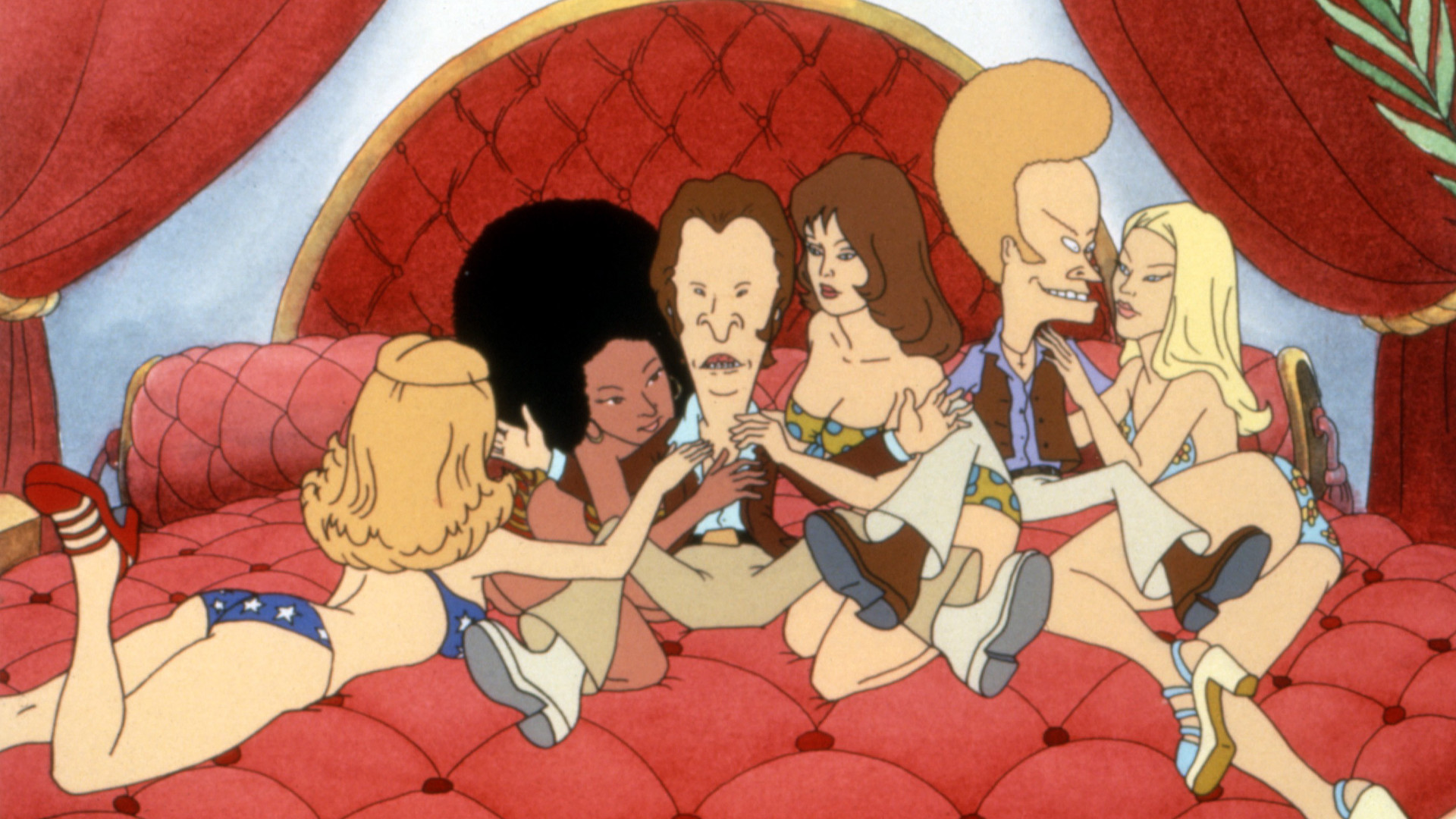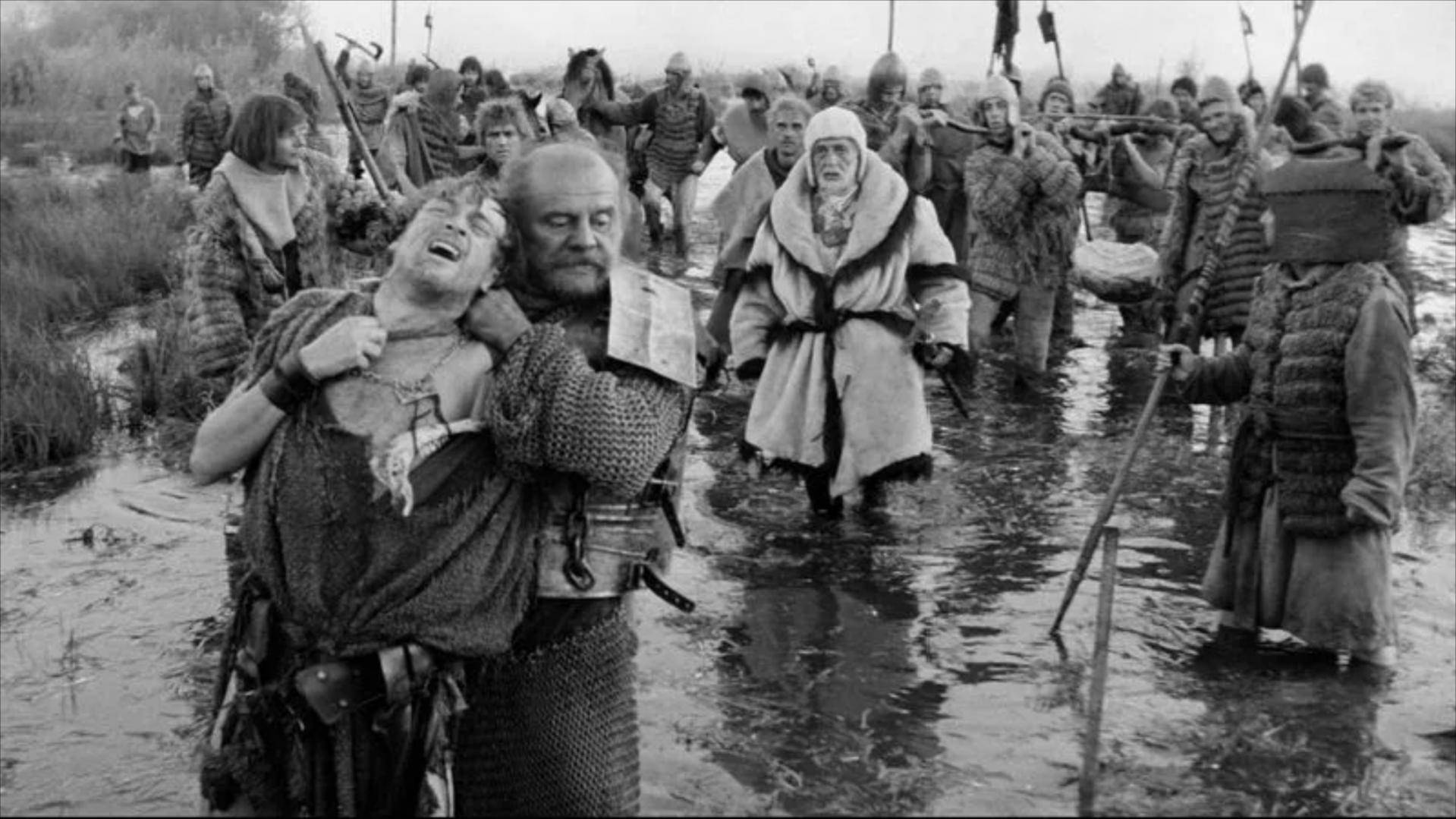
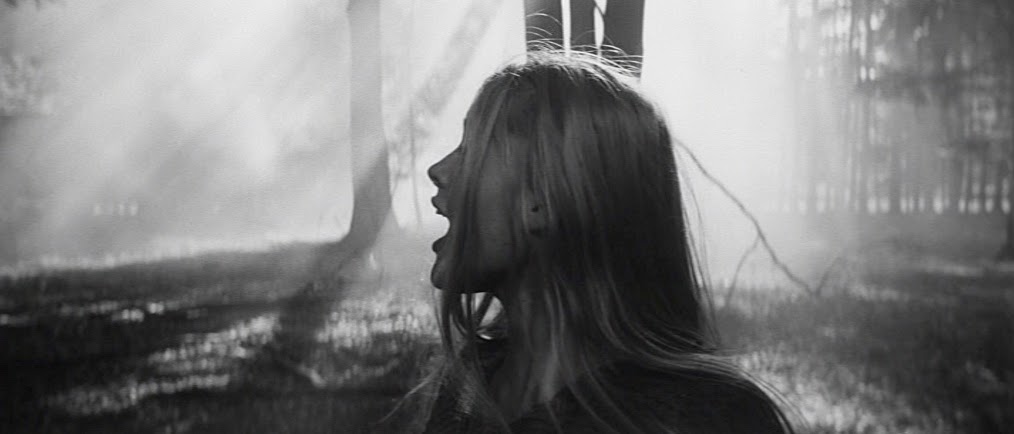
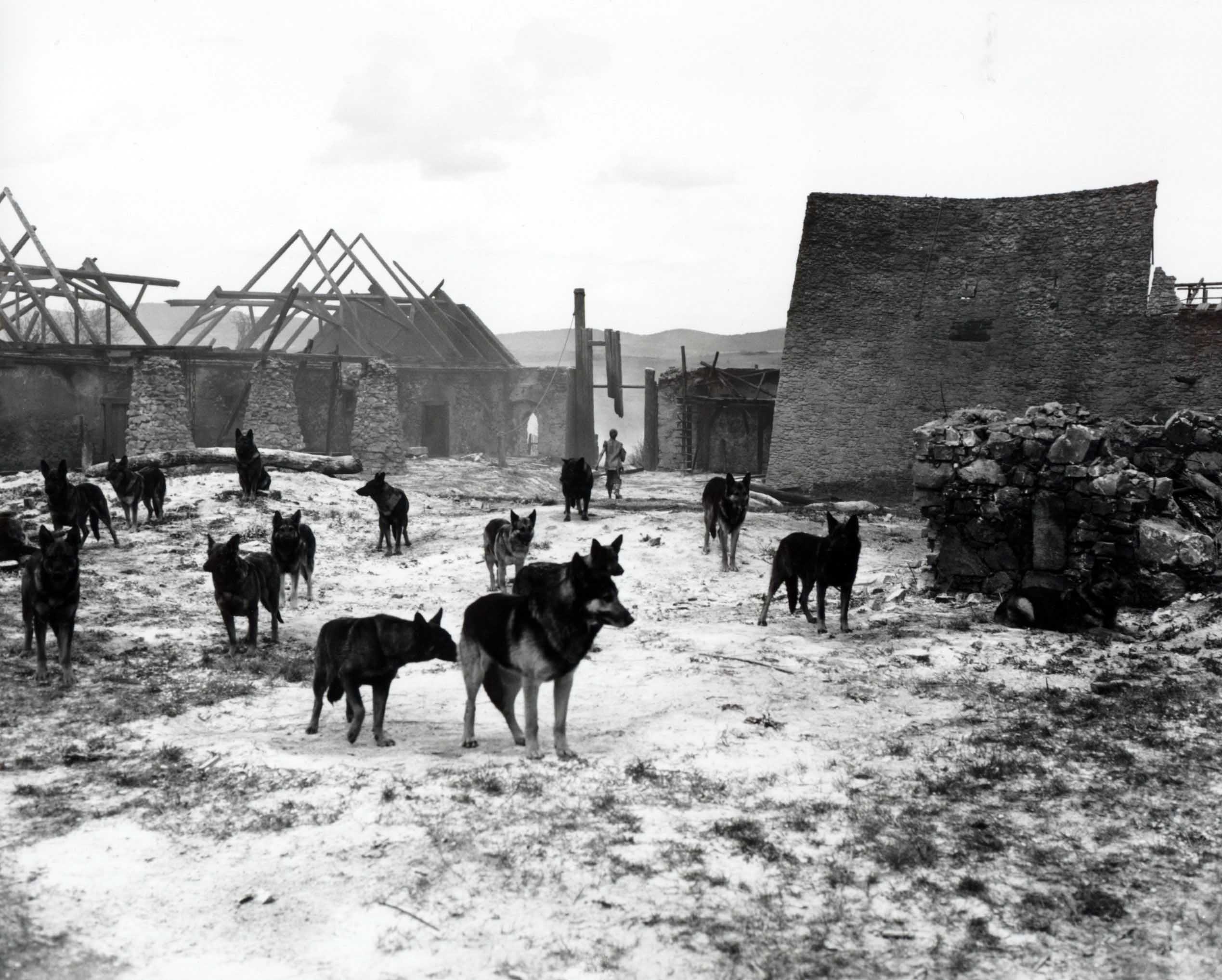
Most people's first association with Františel Vlačil's Marketa Lazarova are those high-scale, high-budget auteur-driven artsy films. Stanley Kubrick's 2001: A Space Odyssey, Andrei Tarkovsky's Andrei Rublev, so on and so forth. That's a fair comparison, but what sets Marketa apart from the rest of the pack, besides not getting the recognition it deserves, is how much effort was put into it. I mean no disrespect to the other films, but consider the following: the cast and crew of Marketa Lazarova, prior to shooting the movie, lived by themselves in the woods for 2 years, hunting their own food and building their own settlement. Even the instruments used for the soundtrack were all hand-made during that time. This is effort that you don't see every day, and it absolutely shows.
Actors don't feel like actors, they feel like cavemen. There's no showmanship, no teary monologues, and no sarcasm. Barring the eponymous character, nobody looks like someone you'd see in a club. Instead, expect scars, filth, humility, and stoicism. The music and visuals also give off the same vibe; the camera sneaks through the branches, viewing the action from afar. It constantly looks around, as if expecting to be pounced. It looks up at the cathedral in awe, feeling dwarfed by real civilization. A number of these shots is accompanied by fitting drums or chanting. The atmosphere is thick enough to be cut with a knife, and for the duration of the film, you'll feel like a savage.
Two last things I have to mention: first, the way it treats violence. In most movies, you get one of two kinds of treatment; the Christopher Nolan kind, where the gore is obscured in some way to not offend anyone, or the Quentin Tarantino kind, where heads splat like watermelons. Marketa Lazarova goes for a third option; the completely unceremonious kind. There's piles of dead bodies, but there's no close-ups, gasps or anything. It just doesn't make a big deal out of what was normal in the medieval times.
Second, it's a demanding movie. As in, it demands you read the plot synopsis online. That's my one complaint: it's hard to follow, even with its narration. I can forgive that, for reasons stated above, but it's worth mentioning.
To summarize, Marketa Lazarova is more than just great, it's one of the greatest. I'm sure it would be given its well-deserved legend status if it was given more attention, but you don't have to take my word for it. The whole movie is on Youtube with both English and Spanish subtitles. You can see for yourself why I decided to gush about it.


